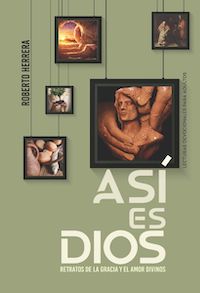Psalm 22: The Psalm of the Cross
|
Psalm 22 “has been called a prophetic and Messianic psalm of the greatest pathos, and has sometimes been termed The Psalm of the Cross, because of references in it that NT [New Testament] writers apply to the sufferings of the sinless Son of God during His passion, when, despite His trust in God, it appeared that God had forsaken Him. There is in the entire psalm no confession of sin or trace of bitterness. The imagery is that of David, and the psalm abounds in expressions which appear in psalms that are generally attributed to David. Though the psalmist appears to be relating his own experience, frequent references in the NT attest the Messianic character of at least portions of this psalm (Matt. 27:35, 39, 43, 46; Mark 15:24, 34; Luke 23:34, 35; John 19:24, 28).” This psalm asks the eternal question: Why? (v. 1).
God the Father heard every word spoken by His Son.
Jesus, however, had no evidence of His Father’s presence.
David also felt abandoned, yet God was near (v. 2).
David wanted to know why he must pass through such trials (vv. 3–5).
Why had God helped others and not him (vv. 4, 5)? Had he been foolish to place his trust in the Lord (vv. 6–8)? No! He would not go that far (vv. 9–11).
Yet he is encompassed by enemies (vv. 12, 13).
He has lost strength and courage (v. 14).
His body has become fragile. He is thirsty and near death (v. 15).
He is so emaciated that his skin delineates his bones (v. 17).
The psalm now takes a decided turn: “Thou hast heard me” (v. 21).
The last part of the psalm praises God for deliverance (vv. 22–31).
David vows to praise Him as a witness in the congregation (vv. 22, 25).
Many also will turn to God because of the gospel of Jesus Christ, and generations to come will hear and rejoice at the good news of salvation (vv. 30, 31)! “O sacred Head, now wounded, / With grief and shame weighed down, / Now scornfully surrounded / With thorns, Thine only crown; / How pale Thou art with anguish, / With sore abuse and scorn! / How does that visage languish / Which once was bright as morn!”

